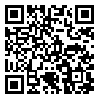Wed, Jan 28, 2026
[Archive]
Volume 36, Issue 1 (1-2022)
Med J Islam Repub Iran 2022 |
Back to browse issues page
Download citation:
BibTeX | RIS | EndNote | Medlars | ProCite | Reference Manager | RefWorks
Send citation to:



BibTeX | RIS | EndNote | Medlars | ProCite | Reference Manager | RefWorks
Send citation to:
Dargahi H, Monajemi A, Soltani A, Hossein Nejad Nedaie H, labaf A. Anchoring Errors in Emergency Medicine Residents and Faculties. Med J Islam Repub Iran 2022; 36 (1) :941-946
URL: http://mjiri.iums.ac.ir/article-1-6059-en.html
URL: http://mjiri.iums.ac.ir/article-1-6059-en.html
Department of Philosophy of Sciences, Institute for Humanities and Cultural Studies, Tehran, Iran , monajemi@ihcs.ac.ir
Abstract: (2481 Views)
Background: Clinical reasoning is the basis of all clinical activities in the health team, and diagnostic reasoning is perhaps the most critical of a physician's skills. Despite many advances, medical errors have not been reduced. Studies have shown that most diagnostic errors made in emergency rooms are cognitive errors, and anchoring error was identified as the most common cognitive error in clinical settings. This research intends to determine the frequency and compare the percentage of anchoring bias perceived among faculty members versus residents in the emergency medicine department.
Methods: In this quasi-experimental study, Emergency Medicine's Faculties and Residents are evaluated in clinical reasoning by nine written clinical cases. The clinical data for each clinical case was presented to the participants over three pages, based on receiving clinical and para-clinical information in real situations. At the end of each page, participants were asked to write up diagnoses. Data were analyzed using one-way ANOVA test. The SPSS software (Version 16.0) was employed to conduct statistical tests, and a P value < 0.05 was considered to be statistically significant.
Results: Seventy-seven participants of the residency program in the Emergency Medical group volunteered to participate in this study. Data showed Faculties were significantly higher in writing correct diagnoses than residents (66% vs. 41%), but the anchoring error ratio was significantly lower in residents (33% vs. 75%). In addition, the number of written diagnoses, time for writing diagnoses, and Clinical experience in faculties and residents were compared.
Conclusion: Findings showed that increasing clinical experience increased diagnostic accuracy and changed cognitive medical errors. Faculties were higher than residents in anchoring error ratio. This error could be the result of more exposure and more decision-making in the mode of heuristic or intuitive thinking in faculties.
Methods: In this quasi-experimental study, Emergency Medicine's Faculties and Residents are evaluated in clinical reasoning by nine written clinical cases. The clinical data for each clinical case was presented to the participants over three pages, based on receiving clinical and para-clinical information in real situations. At the end of each page, participants were asked to write up diagnoses. Data were analyzed using one-way ANOVA test. The SPSS software (Version 16.0) was employed to conduct statistical tests, and a P value < 0.05 was considered to be statistically significant.
Results: Seventy-seven participants of the residency program in the Emergency Medical group volunteered to participate in this study. Data showed Faculties were significantly higher in writing correct diagnoses than residents (66% vs. 41%), but the anchoring error ratio was significantly lower in residents (33% vs. 75%). In addition, the number of written diagnoses, time for writing diagnoses, and Clinical experience in faculties and residents were compared.
Conclusion: Findings showed that increasing clinical experience increased diagnostic accuracy and changed cognitive medical errors. Faculties were higher than residents in anchoring error ratio. This error could be the result of more exposure and more decision-making in the mode of heuristic or intuitive thinking in faculties.
Keywords: Clinical Decision-Making, Diagnostic Errors, Clinical Reasoning, Emergency Medicine, Medical Faculty
Type of Study: Original Research |
Subject:
Medical Education
Send email to the article author
| Rights and permissions | |
 |
This work is licensed under a Creative Commons Attribution-NonCommercial 4.0 International License. |








